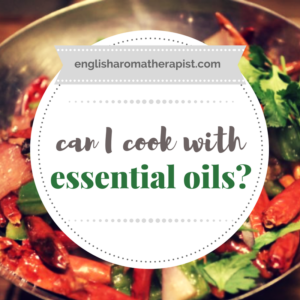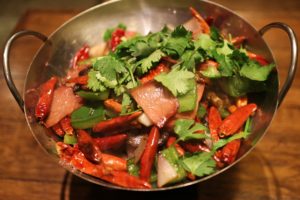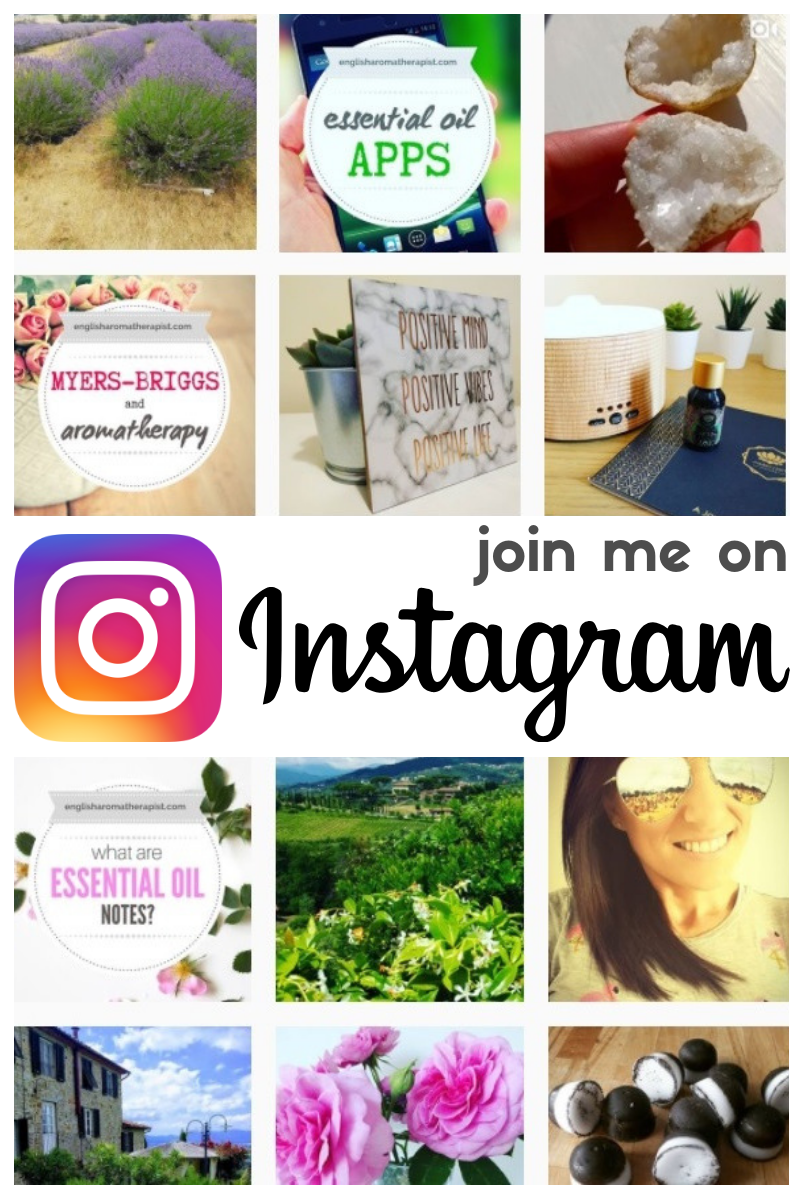Can I Cook With Essential Oils?

Cooking with essential oils is a burgeoning yet often misunderstood concept. Traditionally, professional aromatherapy training has always warned against consuming essential oils, but now we are seeing more and more recommendations to incorporate them into our everyday food and drinks.
Recently, it has become fashionable to advocate drinking drops of essential oils in water, ostensibly to improve internal health (read more about this here). Pinterest is full of beautiful blog posts about how to use essential oils in cookery – in fact, it has become mainstream to the point where we’re now led to believe that essential oils can just be liberally added to anything we eat and drink.
It’s no wonder that people are left feeling confused – on the one hand, we’re told not to take essential oils internally. On the other hand, we’re being encouraged to use them in our cooking.
Those in favour of consuming essential oils will argue that many of them have been approved by the FDA (in America) as safe for consumption. And it’s true that if you brushed your teeth with regular toothpaste this morning, or chewed minty gum, it’s likely you’ve already consumed essential oils today without even realising. Even Coca-Cola contains 16 essential oils in its famously secret recipe, including lime, vanilla and orange. Essential oils are regularly used to add flavour to beverages, confectionery and other foodstuffs. How often have you read that if essential oils are GRAS registered, they are safe to consume?

So, does this mean it’s safe to casually add drops of essential oils to our own drinks at home, or dishes we cook in our home kitchen?
Well, not really.
Sure, we might be consuming minuscule amounts of essential oils in commercial products every day, but this is not the same as actually adding drops to our food at home. In commercial production, essential oils are used in tiny amounts as part of a large recipe. You won’t be consuming one drop, but a tiny fraction of a drop (read more about this here).
Liberally adding drops of essential oils here and there at home is completely different. You might think “Well, it’s only one drop!” but remember we’re talking about extremely concentrated and potent substances here. One drop of peppermint essential oil is the equivalent of 27 cups of peppermint tea – and you’d probably never consider drinking that much in one day! There are many ingredients that are classed as “safe for consumption”, but this doesn’t mean they should be consumed with reckless abandon – common table salt is perhaps the best example of this!
It’s also worth mentioning that – contrary to popular belief – essential oils will not “add nutritional value” to your food.
If you’re interested in cooking with essential oils, you’ll find hundreds of blog articles and ebooks on the subject. While I don’t personally recommend ingesting essential oils, if you do want to experiment then I would certainly proceed with caution. My advice would be to choose your recipes carefully – don’t believe everything you read, and check the credentials of the person who is recommending any particular recipe. Is it someone qualified in aromatherapy, or someone who has just signed up to be a distributor of essential oils?
My recommendation would be to seek out reliable books to use as sources of information, rather than unverified blog posts, forums or social media sites. As always, take care when using essential oils and remember to check the safety advice before using them.
Have you tried cooking with essential oils? Let me know your thoughts!
What to read next: Is It Safe To Make Your Own Beauty Products?
Follow me on...
Share this on...
